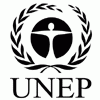Community / Land projects / Transforming and scaling up results and lessons learned in the Monte Alen and Rio Campo Landscapes through an
Transforming and scaling up results and lessons learned in the Monte Alen and Rio Campo Landscapes through an

€4395490.888
04/22 - 03/26
Ativo
This project is part of
Implementing Organisations
Donors
Data Providers
Objectives
To conserve and sustainably manage biodiversity and forest ecosystems in the Monte Alen and Rio Campo landscapes in Equatorial Guinea through an inclusive landscape approach, effective land use planning, enhanced management of protected areas and the promotion of local governance and sustainable livelihood options
Other
Note: Disbursement data provided is cumulative and covers disbursement made by the project Agency.
Target Groups
The project will strengthen the land use planning, governance and management frameworks for sustainable forest management across two landscapes that cover more than half of the continental region of Equatorial Guinea. These landscapes are multi-use systems that are essential to the food security and livelihoods of the people who live within them. The ecosystems of the landscapes are vital to residents of the landscapes who rely on them for food production, water, energy and many other services. Over the last decades pressure on the natural resources of the landscapes has been increasing due to human interventions and climate change and variability.Establishing effective land use planning, governance and management systems for sustainable development will provide an improved means for stakeholders to dialogue and develop solutions to increasing pressure on the forest ecosystems. The application of these strategies will contribute to maintaining or improving the values and functions of the lanscapes’ ecosystems, improving their resilience, their ability to supply critical services and their ability to support multiple production systems. In turn this will build the adaptive capacity and resilience of local communities and the broader stakeholder community in the face of growing anthropogenic pressures and climate variability.In addition, the project will improve the capacity and resilience of local communities by developing alternative livelihoods. Without the intervention of this project, unsustainable practices and anthropogenic pressures will continue to negatively impact and degrade the area targeted by this project. These negative impacts will put at risk the ecological and livelihood systems upon which local communities directly depend and will increase the stressors confronting thousands of households across the region. These households will also have reduced flexibility to respond to the impacts of climate change.




